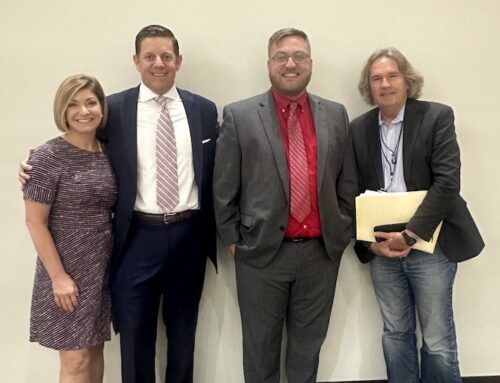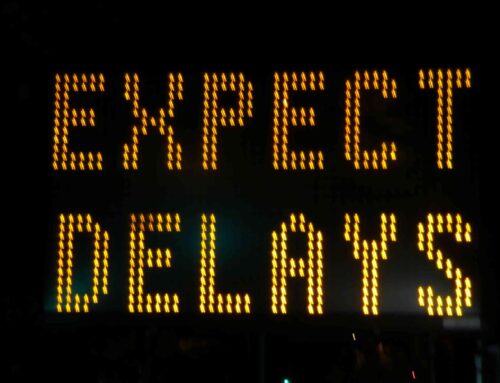Judge Myles goes after press for publishing information from leaked documents in Covenant case

A Davidson County chancellor on Monday ordered Michael Patrick Leahy to appear in court on June 17 to show why his publication of information from leaked documents in the Covenant case does not violate her court orders, and why he should not be held in contempt of court.
Update 9:24 p.m. June 14 (see original story below)
Late Thursday, the judge issued yet an additional order saying there would be no live witness testimony at the June 17 show cause hearing. Clearly, her earlier orders specifically asked Leahy to appear in person, and in one case “to discuss an alleged leak.” But no live witness testimony means the only speaking will be by the lawyers and the judge.
Update at 3:50 p.m., June 13 (original story below):
Judge may appoint an attorney to investigate, initiate contempt proceedings
On Thursday afternoon, Leahy filed an emergency application with the Court of Appeals to stay the court’s Monday order for a show cause hearing.
Meanwhile, also on Thursday afternoon, Chancellor Myles denied Leahy’s motion to set aside her order in a new order that included more information about the June 17 hearing. In the new order, Myles denies that the show cause hearing would interfere with Leahy’s First Amendment rights and says she wants to “ascertain the status and veracity of any alleged leak of the in camera documents that are in the possession of this Court and the Respondent in case.” (The Respondent is the Metro Police Department).
In the new Thursday order, Myles characterizes her earlier order as an order for Leahy to appear in court to “discuss an alleged leak and publication of certain documents which the Court has in its possession for in camera review and to determine, if the allegations are true, if there is a violation of this Court’s Orders which would subject any party to this case to contempt proceedings or sanction.”
However, her Monday order specifically set a hearing “to determine why the alleged publication of certain purported documents by Petitioners Star Digital Media and Michael Leahy, as the Editor-in-Chief does not violate the Orders of this Court subjecting them to contempt proceedings and sanctions.” (emphasis added)
In the new order, which doesn’t replace the original order, Myles ordered that a representative of (Nashville) Metropolitan Government also be present at the hearing. “Should this Court determine that an alleged leak did in fact occur by any party to this case and that such action was in violation of the Orders of this Court, or that there has been any abuse of, or unlawful interference with, the process or proceedings of this Court, or any violation set forth in Tennessee Code Annotated § 29-9-102 (the law governing contempt of court), this Court may enter an order and notice appointing an attorney as amicus curiae to the court for investigative purposes, and to initiate and prosecute a contempt citation.”
At this point, it is unclear to this writer what Chancellor Myles intends to do on Monday except to get information to determine if any of her orders have been violated. She may want Leahy to identify his source or how he got the leaked documents. Even so, none of her orders prohibit publishing information from leaked documents, nor do they prohibit Metro Police from releasing more information about the Covenant shooting.
As of late this afternoon, we are waiting for the Court of Appeals to either accept the emergency appeal to set aside the order for the Monday hearing, or for the hearing itself. Already, Leahy’s lawyer says he is advising his client not to testify on Monday, considering the court’s clear interest in pursuing contempt charges against him as outlined in the initial order.
Published earlier on June 13:
Davidson County Chancellor I’Ashea L. Myles is going after the press for publishing information from leaked documents from the police investigative file of the Covenant case involving the 2023 school shooting.
Specifically, on Monday she ordered Michael Patrick Leahy, editor and owner of the online Tennessee Star, to appear in court on the next Monday, June 17, to explain why his publication of information from leaked documents on his website does not violate her orders and why Leahy should not be held in contempt and sanctioned.
“…this Court sets a show cause hearing to determine why the alleged publication of certain purported documents by Petitioners Star Digital Media and Michael Leahy, as the Editor-in-Chief, does not violate the Orders of this Court subjecting them to contempt proceedings and sanctions,” the court’s June 10 order said.
Tennessee Star articles new reveal information about Covenant case

Chancellor I’Ashea Myles appears to be going after the press, specifically The Tennessee Star, for publishing information from leaked documents in the Covenant case. (Photo from Myles’ Instagram page.)
Leahy published more than 30 articles beginning last week based on leaked documents, an anonymous source “familiar with the Covenant investigation” and pictures presumably taken by police during their investigation. The stories include excerpts from police interviews with shooter Audrey Hale’s parents, information about drugs she was taking, excerpts from her writings explaining her motivations, and, perhaps most significantly, a source that said police seized documents that show that Hale told a psychologist during treatment sessions “that she fantasized about killing her parents and further fantasized about a school shooting.”
Leahy is one of four plaintiffs who filed a lawsuit in May 2023, challenging the refusal of Nashville police to release records from its investigation into the shooting. Police have said their investigation is not over, they might still charge someone, and they don’t have to release records yet.
In February, Myles issued two orders (Feb. 13 order, Feb. 25 order) in the case that barred the parties from submitting as a court record any leaked documents that might be related to the case, or referencing them in detail in any briefing or argument. “No party shall directly quote or reproduce contents of any such document in its briefing argument,” she wrote.
Daniel Horwitz, the attorney hired by Leahy after he received the order to appear in court, filed an emergency motion Wednesday to set aside the show cause order, arguing that the order violates the reporter’s shield law, contravenes the law governing contempt proceedings, deprives Leahy of due process and is unconstitutional under the First Amendment if the judge claims that her previous orders barred any of the press plaintiffs from publishing material.
How did Leahy violate the judge’s order in Covenant case?
Horwitz’s motion argues that the chancellor’s show cause order is not clear about what Leahy did that violated her February orders as those orders appear to be only related to filings, briefings and court arguments in the case. Leahy did not file any material with the court that violated the order; nor did he use the leaked documents in any way in the case.
“It is clear, though that the Show Cause Order arises from this Court’s concerns about the ‘alleged publication of certain purported documents and information that this Court has in its possession for in camera review in this matter,'” Horwitz wrote, quoting the chancellor’s show cause order.
Did Myles intend to bar press from publishing leaked documents?
“The strong implication from this statement is that the Court believes an earlier order entered in this case restricted Mr. Leahy — a reporter — from publishing lawfully obtained documents to his readership. None of this Court’s earlier orders appears — at least to the undersigned – to contemplate such a drastic restriction,” the motion says. “If this Court interprets one of its earlier orders that way, though, then the order is a prior restraint that suffers from serious constitutional infirmities and is presumptively unconstitutional.”
Horwitz quotes a 1976 landmark Supreme Court case, Nebraska Press Association v. Stuart, in saying that such an order would be presumptively invalid: “[P]prior restraints on speech and publication are the most serious and the least tolerable infringement on First Amendment rights.”
Supreme Court has never upheld prior restraint on press
The motion further explains that U.S. Supreme Court has never upheld a prior restraint, even when faced with a competing interest of national security, such as the 1971 Pentagon Papers case decided in New York Times Co. v. United States.
Horwitz also argues that because Myles is not specific about what part of her February orders that Leahy violated, she has deprived Leahy of his rights to defend himself. Quoting a March 2024 Court of Appeals decision, he said that “[o]rders which form the basis for a contempt charge must ‘expressly and precisely’ spell out the details of compliance in a way that ‘reasonable persons’ will know exactly what actions are required or forbidden.”
“Mr. Leahy is left to guess what he is accused of doing that this Court believes may subject him ‘to contempt proceedings and sanctions.'” He also said he is advising his client not to testify at the court’s Monday hearing because anything he says could risk incriminating him “with respect to future-but-as-yet-unknown contempt charges based on unidentified provisions of unidentified orders.”
If Myles does not withdraw her show cause order, Horwitz told the court he plans to file for emergency relief from the Tennessee Court of Appeals at noon today.
Myles said in her order that it was prompted by a call from a reporter asking her to comment about the Tennessee Star’s “alleged publication of certain purported documents and information that this Court has in its possession for in camera review.”
The order is just the latest unusual twist in this public records case.
Shortly after the case began, Myles allowed the Covenant School parents, the school and the church that operates the school to intervene in the case — all of which want to prevent records from being released. The parents eventually have claimed ownership of the shooter’s writings (having received this ownership from the shooter’s parents) and have asserted a copyright interest. They say this copyright interest allows them to prevent the police from releasing the writings.
The parents also claim that releasing the writings would violate the surviving children’s rights as victims because it would allow the shooter to harass them forever “from the grave.




